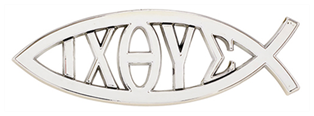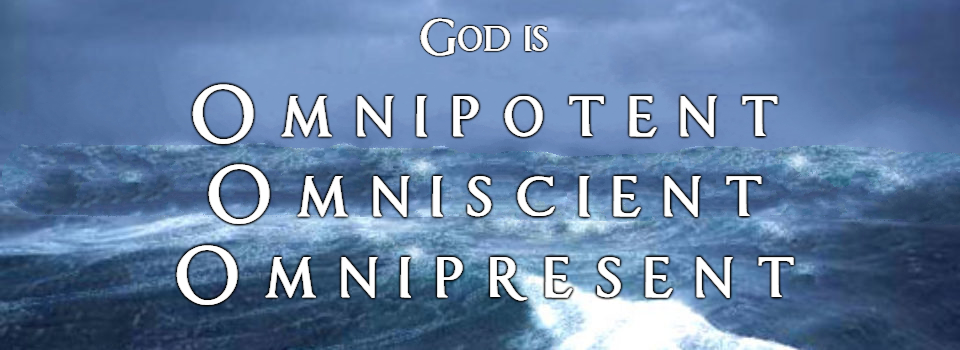This Sanctuary Sunday Open Thread, with full respect to those who worship God on the Sabbath, is a place to reaffirm our worship of our Creator, our Father, our King Eternal.
It is also a place to read, post and discuss news that is worth knowing and sharing. Please post links to any news stories that you use as sources or quote from.
In the QTree, we’re a friendly and civil lot. We encourage free speech and the open exchange and civil discussion of different ideas. Topics aren’t constrained, and sound logic is highly encouraged, all built on a solid foundation of truth and established facts.
We have a policy of mutual respect, shown by civility. Civility encourages discussions, promotes objectivity and rational thought in discourse, and camaraderie in the participants – characteristics we strive toward in our Q Tree community.
Please show respect and consideration for our fellow QTreepers. Before hitting the “post” button, please proofread your post and make sure you’re addressing the issue only, and not trying to confront the poster. Keep to the topic – avoid “you” and “your”. Here in The Q Tree, personal attacks, name calling, ridicule, insults, baiting and other conduct for which a penalty flag would be thrown are VERBOTEN.
In The Q Tree, we’re compatriots, sitting around the campfire, roasting hot dogs, making s’mores and discussing, agreeing, and disagreeing about whatever interests us. This board will remain a home for those who seek respectful conversations.
Please also consider the Guidelines for posting and discussion printed here: https://www.theqtree.com/2019/01/01/dear-maga-open-topic-20190101/
How Big Is Your God?
Yours, O Lord, is the greatness and the power and the glory and the victory and the majesty, indeed everything that is in the heavens and the earth; Yours is the dominion, O Lord, and You exalt Yourself as head over all. (1 Chronicles 29:11)
Robert D. Wilson (1856-1930) was a Presbyterian scholar who devoted his life to showing the Hebrew Bible’s reliability. In proving the accuracy of the Old Testament manuscripts, Wilson learned 45 languages, including all languages into which the Scriptures had been translated up to 600 AD. He was a Professor at Princeton Seminary and Westminster Seminary.
Wilson went to hear one of his students (Donald Barnhouse) preach and said, “I came to see if you are a Big-Godder or a little-godder, then I know how your life and ministry will unfold.” Wilson explained that people with a little god are always in trouble. Their god can’t create or do miracles. He can’t forgive big sins or help people change their lives in big ways. Their little god can’t take care of the Scriptures’ inspiration and transmission to us. He doesn’t intervene for His people or answer prayer. These people have a little god who is really no god at all.
Others have the great, awesome, almighty, invincible God—the Lord of the Bible—Father, Son, and Holy Spirit. This God speaks and it is done; He commands and it stands firm; He shows Himself strong on behalf of those who love, fear, trust, and obey Him. Dr. Wilson said, “You, young man are a Big-Godder, and the Lord will bless your life and ministry. He will use you for His praise.”
Christ can save, He can cleanse, He can keep, and He will. Christ can do anything but fail. He’s the Alpha and Omega, the beginning and the end. He’s the fairest of ten thousand to my soul. God can do anything, anything, anything. God can do anything but fail.
Near age 70, Wilson finished a lecture on the trustworthiness of Scripture and said to his students, tears streaming down his face: “There are many mysteries in life I can’t understand, many things hard to explain. But I can tell you with absolute assurance: Jesus loves me, this I know, for the Bible tells me so!”
God said, “I will cause all my goodness to pass in front of you, and I will proclaim my name, the Lord, in your presence. I will have mercy on whom I will have mercy, and I will have compassion on whom I will have compassion.” …And He passed in front of Moses, proclaiming, “The Lord, the Lord, the compassionate and gracious God, slow to anger, abounding in love and faithfulness, maintaining love to thousands, and forgiving wickedness, rebellion and sin….” (Exodus 33:19; 34:6-7)
How big is your God? How much is He in control? Does He have the whole world and you in His hands? Is He big enough to win against sin, Satan, death, disease, and all false religions?
Do you not know? Have you not heard? The LORD is the everlasting God, the Creator of the ends of the earth. He will not grow tired or weary, and His understanding no one can fathom. He gives strength to the weary and increases the power of the weak. Even youths grow tired and weary, and young men stumble and fall; but those who hope in the LORD will renew their strength. They will soar on wings like eagles; they will run and not grow weary, they will walk and not be faint. (Isaiah 40:28-31)
* https://wohbm.org/are-you-a-big-godder/
Well, then, if God is a Big God . . .
Why is it that bad things happen to good people?
We live in a world of pain and suffering. There is no one who is not affected by the harsh realities of life, and the question “why do bad things happen to good people?” is one of the most difficult questions in all of theology. God is sovereign, so all that happens must have at least been allowed by Him, if not directly caused by Him. At the outset, we must acknowledge that human beings, who are not eternal, infinite, or omniscient, cannot expect to fully understand God’s purposes and ways.
The book of Job deals with the issue of why God allows bad things to happen to good people. Job was a righteous man (Job 1:1), yet he suffered in ways that are almost beyond belief. God allowed Satan to do everything he wanted to Job except kill him, and Satan did his worst. What was Job’s reaction? “Though he slay me, yet will I hope in him” (Job 13:15). “The LORD gave and the LORD has taken away; may the name of the LORD be praised” (Job 1:21). Job did not understand why God had allowed the things He did, but he knew God was good and therefore continued to trust in Him. Ultimately, that should be our reaction as well.
Why do bad things happen to good people? As hard as it is to acknowledge, we must remember that there are no “good” people, in the absolute sense of the word. All of us are tainted by and infected with sin (Ecclesiastes 7:20; Romans 3:23; 1 John 1:8). As Jesus said, “No one is good—except God alone” (Luke 18:19). All of us feel the effects of sin in one way or another. Sometimes it’s our own personal sin; other times, it’s the sins of others. We live in a fallen world, and we experience the effects of the fall. One of those effects is injustice and seemingly senseless suffering.
When wondering why God would allow bad things to happen to good people, it’s also good to consider these four things about the bad things that happen:
1) Bad things may happen to good people in this world, but this world is not the end. Christians have an eternal perspective: “We do not lose heart. Though outwardly we are wasting away, yet inwardly we are being renewed day by day. For our light and momentary troubles are achieving for us an eternal glory that far outweighs them all. So we fix our eyes not on what is seen, but on what is unseen, since what is seen is temporary, but what is unseen is eternal” (2 Corinthians 4:16–18). We will have a reward some day, and it will be glorious.
2) Bad things happen to good people, but God uses those bad things for an ultimate, lasting good. “We know that in all things God works for the good of those who love him, who have been called according to his purpose” (Romans 8:28). When Joseph, innocent of wrongdoing, finally came through his horrific sufferings, he was able to see God’s good plan in it all (see Genesis 50:19–21).
3) Bad things happen to good people, but those bad things equip believers for deeper ministry. “Praise be to . . . the Father of compassion and the God of all comfort, who comforts us in all our troubles, so that we can comfort those in any trouble with the comfort we ourselves receive from God. For just as we share abundantly in the sufferings of Christ, so also our comfort abounds through Christ” (2 Corinthians 1:3–5). Those with battle scars can better help those going through the battles.
4) Bad things happen to good people, and the worst things happened to the best Person. Jesus was the only truly Righteous One, yet He suffered more than we can imagine. We follow in His footsteps: “If you suffer for doing good and you endure it, this is commendable before God. To this you were called, because Christ suffered for you, leaving you an example, that you should follow in his steps. ‘He committed no sin, and no deceit was found in his mouth.’ When they hurled their insults at him, he did not retaliate; when he suffered, he made no threats. Instead, he entrusted himself to him who judges justly” (1 Peter 2:20–23). Jesus is no stranger to our pain.
Romans 5:8 declares, “But God demonstrates his own love for us in this: While we were still sinners, Christ died for us.” Despite the sinful nature of the people of this world, God still loves us. Jesus loved us enough to die to take the penalty for our sins (Romans 6:23). If we receive Jesus Christ as Savior (John 3:16; Romans 10:9), we will be forgiven and promised an eternal home in heaven (Romans 8:1).
God allows things to happen for a reason. Whether or not we understand His reasons, we must remember that God is good, just, loving, and merciful (Psalm 135:3). Often, bad things happen to us that we simply cannot understand. Instead of doubting God’s goodness, our reaction should be to trust Him. “Trust in the LORD with all your heart and lean not on your own understanding; in all your ways acknowledge Him, and He will make your paths straight” (Proverbs 3:5–6). We walk by faith, not by sight.
* https://www.gotquestions.org/bad-things-good-people.html
On this day and every day –
God is in Control
. . . and His Grace is Sufficient, so . . .
Keep Looking Up


“This day is holy to the Lord your God;
do not mourn nor weep.” . . .
“Go your way, eat the fat, drink the sweet,
and send portions to those for whom nothing is prepared;
for this day is holy to our Lord.
Do not sorrow,
for the joy of the Lord is your strength.”
If you keep your feet from breaking the Sabbath and from doing as you please on my holy day, if you call the Sabbath a delight and the Lord’s holy day honorable, and if you honor it by not going your own way and not doing as you please or speaking idle words, then you will find your joy in the Lord, and I will cause you to ride in triumph on the heights of the land and to feast on the inheritance of your father Jacob. For the mouth of the Lord has spoken. Isaiah 58:13-14

